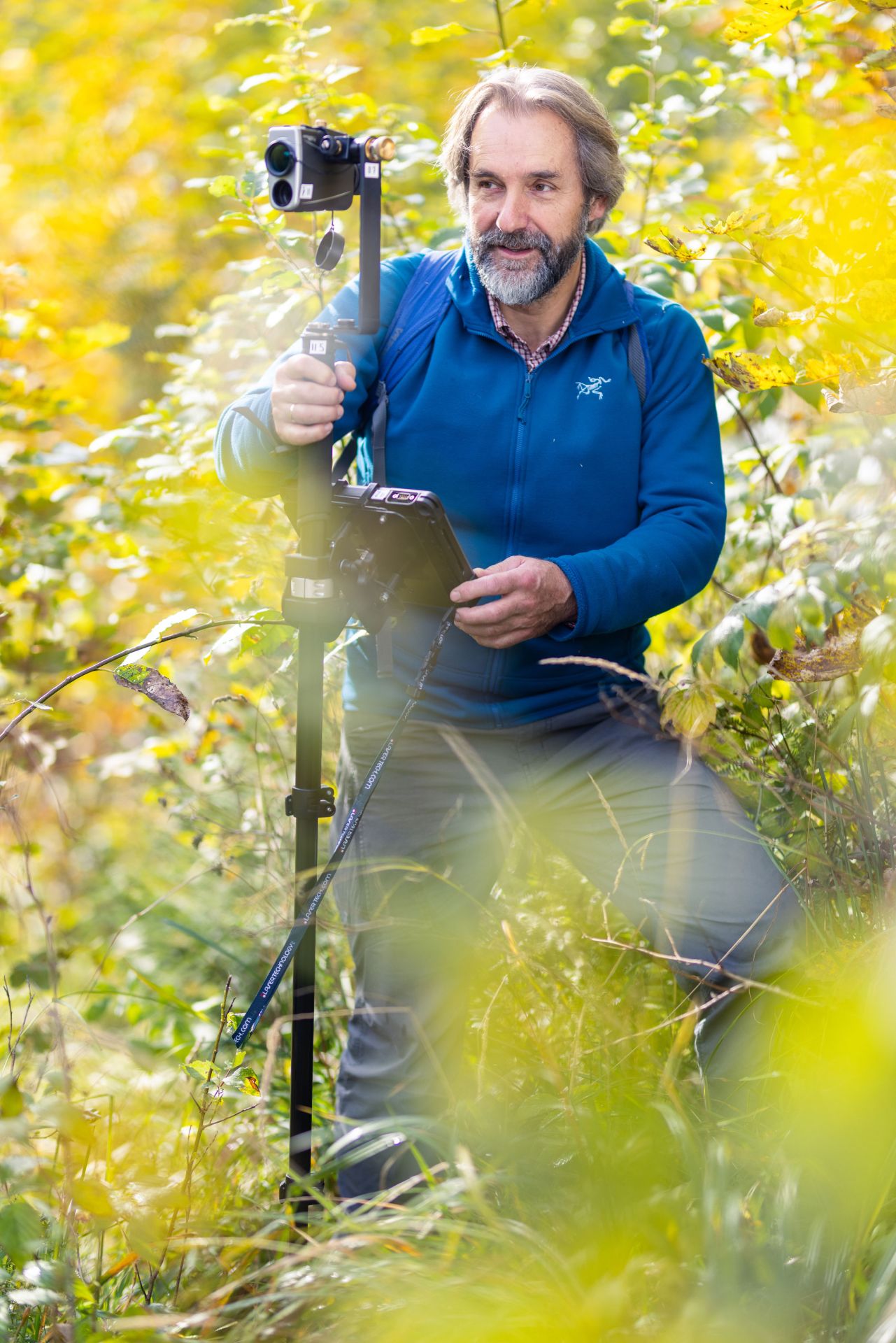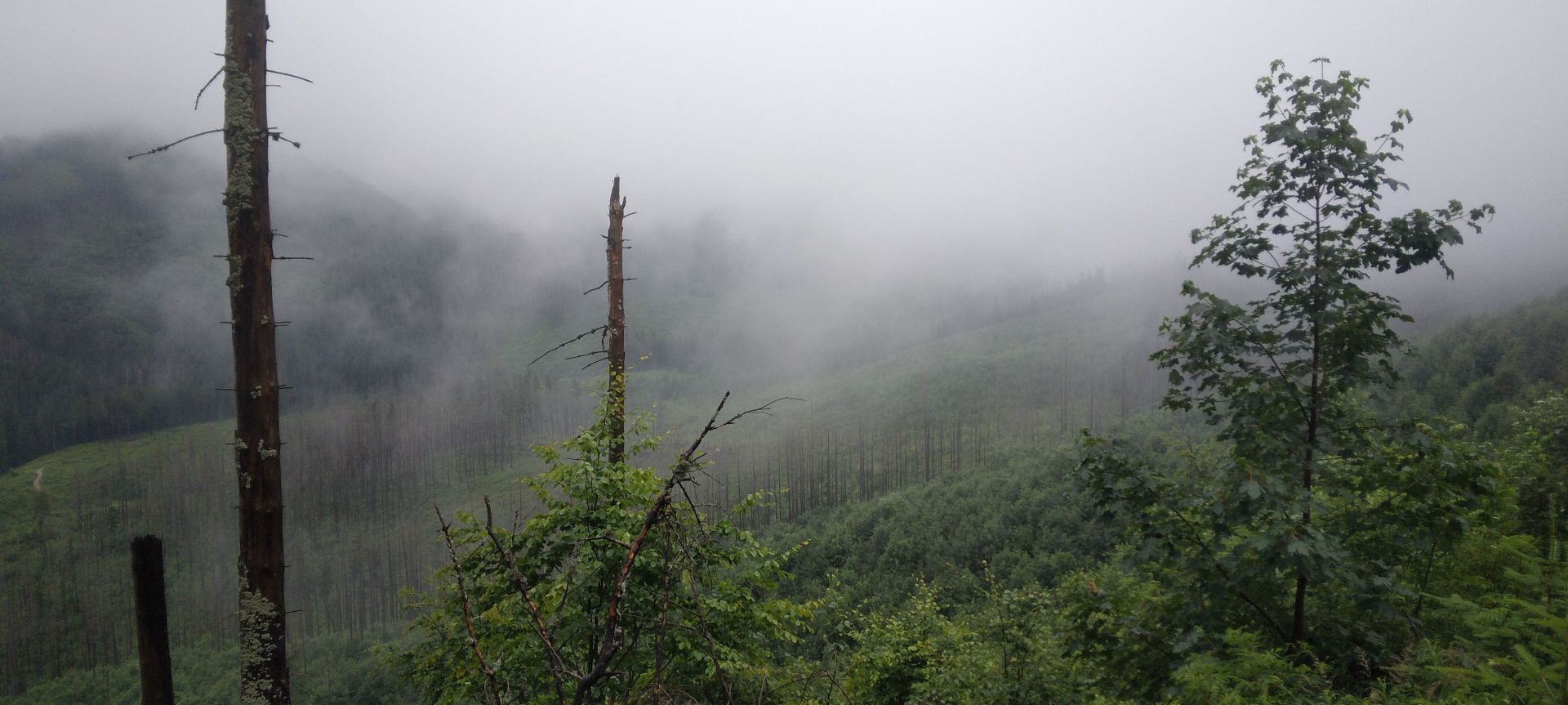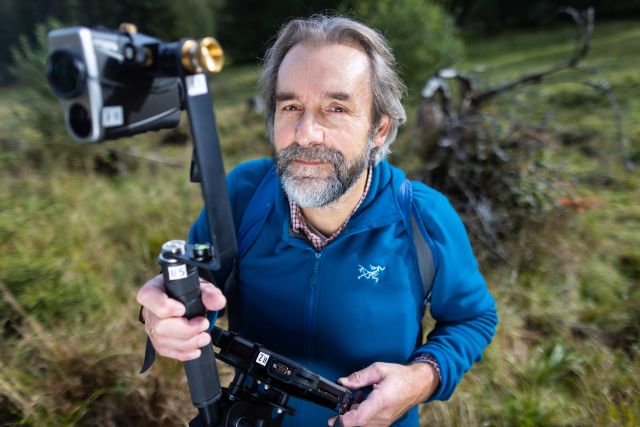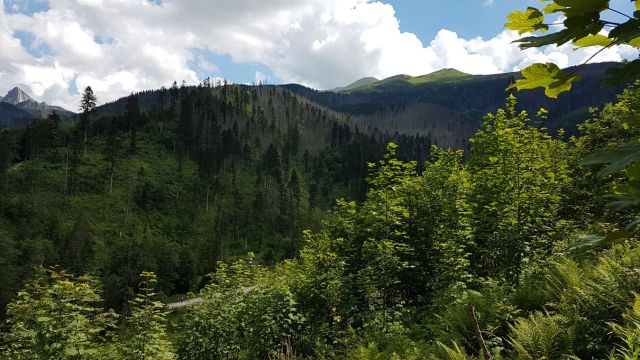Principal Investigator
:
Prof. dr hab. Jerzy Szwagrzyk
University of Agriculture in Krakow
Panel: NZ8
Funding scheme
: OPUS 16
announced on
14 September 2018
The project explores the relationships that hold between intense disturbances (such as hurricanes or woodworm invasions), natural forest regeneration and the browsing of young trees by wild ungulates. Explaining the impact of natural disturbances on the process of forest regeneration under strong herbivore pressure will make an important contribution to the theory of forest community dynamics. Since extreme weather events are likely to become more common due to global climate change, the frequency and intensity of natural disturbances in forest communities will probably increase as well. Such intense disturbances kill many large trees, increasing the availability of light, water and soil resources, which accelerates the growth of the young generation. Thanks to the greater availability of light, the density of young trees increases; they also produce more shoots, which means that ungulate populations in the area have more food at their disposal.
 fot. Michał Łepecki, prof. dr hab. Jerzy Szwagrzyk
fot. Michał Łepecki, prof. dr hab. Jerzy Szwagrzyk
Our assumption is that under conditions of greater resource availability, the growth of herbivore populations will be slower than the increase in the biomass of young trees. Because in the presence of ample light browsing pressure is distributed across a greater number of young trees and there are more opportunities for growth compensation, browsing does not stop the growth of the young generation. Consequently, even those species that would otherwise be strongly suppressed or eliminated by repeated browsing under abundant tree cover get a chance to grow into imposing trees in areas affected by natural disturbances. Our research covers four areas (the Tatra Mountains, Roztocze, Babia Góra, Puszcza Piska), where we have previously set up our outposts.
The goal of the project is to determine which environmental factors impact the spatial variation in ungulate browsing activity. The bulk of the project is carried out in Roztocze and the Tatra Mountains. The forests of the Tatras have experienced extensive natural disturbances in the past two decades, while the disturbances in Roztocze were few and far between and spatially limited. The species composition and forest regeneration dynamics in both areas show important similarities (a large proportion of beech and fir) and differences – spruce and rowan in the Tatras and hornbeam in Roztocze). Our research aims to estimate the number of shoots available to ungulates and analyse the intensity of browsing on young trees under different light conditions, ranging from compact forests to areas where the tree cover has been practically eliminated by hurricanes or woodworm invasions. We have fenced in 60 little research areas, where we measure the parameters of young trees (height, thickness, crown size) and record any damage caused by ungulate mammals. We also carry out parallel light intensity measurements and soil analyses. In order to determine which herbivore species feed in our area and when, we have set up automatic cameras to record animal presence and behaviour, which we hope will help us interpret the results of our measurements.
Preliminary project findings indicate that under conditions created by natural disturbances, species commonly considered as sensitive to herbivore pressure, such as sycamores and rowan trees, quickly grow to heights at which their crown tips are protected from browsing. With a lot of light available across extensive areas, they are able to successfully compete against shade-resistant species and account for a large percentage of the young tree generation. As a result, young forests growing in such areas show greater species diversity than older forest stands. The results of our research may serve as an argument to refrain from interference with natural forest regeneration processes after natural disturbances.

Project title: Impact of intense disturbances on the relationship between herbivores and natural forest regeneration
Prof. dr hab. Jerzy Szwagrzyk
Head of the Department of Forest Biodiversity of the University of Agriculture in Kraków. He studies the structure and dynamics of forest communities, regeneration processes and natural disturbances in forest ecosystems. He has authored more than 190 publications, carried out 12 research projects, and served as an advisor for 12 PhD dissertations. He is a member of the Committee of Environmental and Evolutionary Biology, PAS, scientific boards of the Institute of Environmental Protection, PAS and the Babia Góra Natural Park; he is also the Chairman of the Board of the Tatra National Park.


